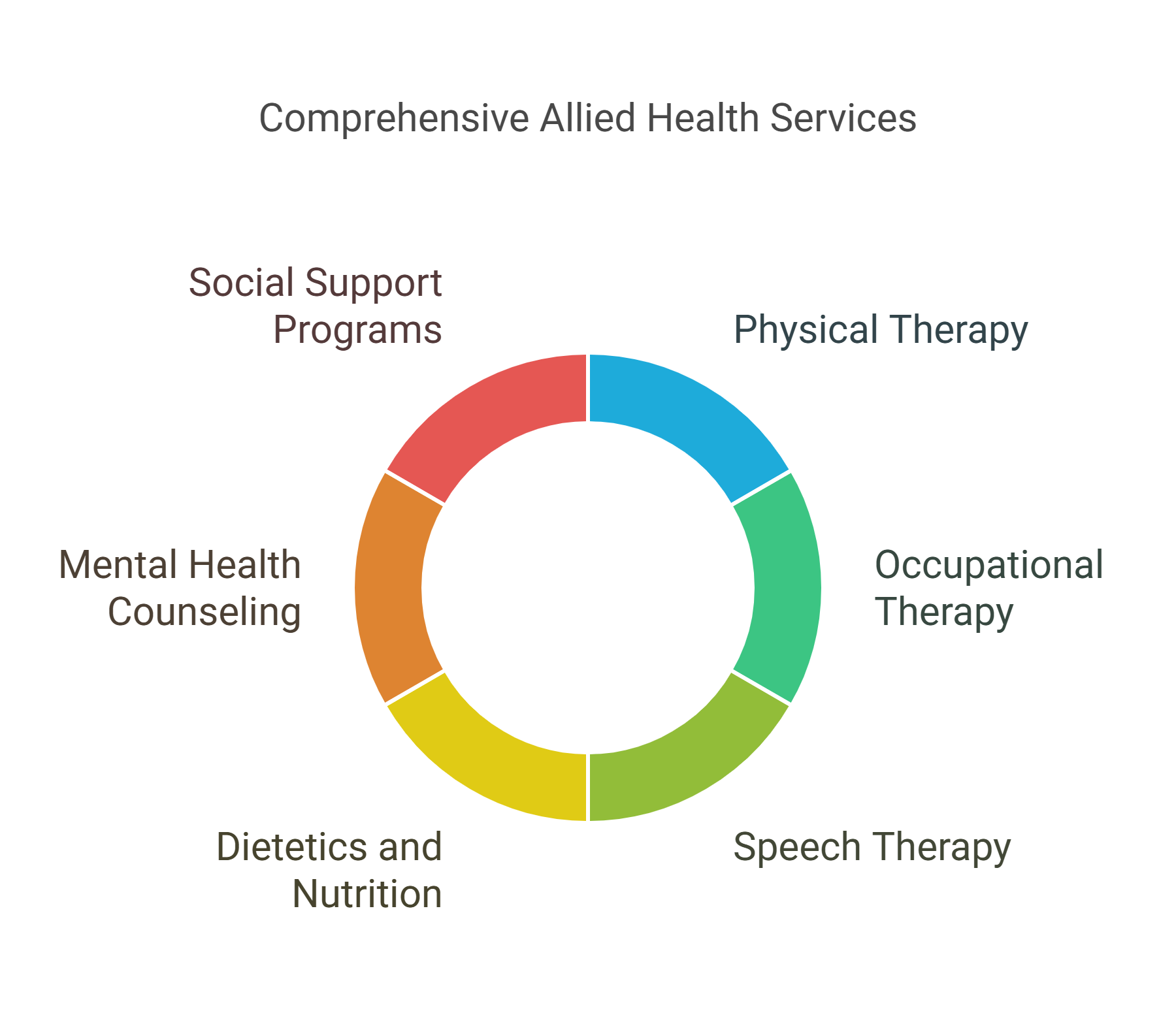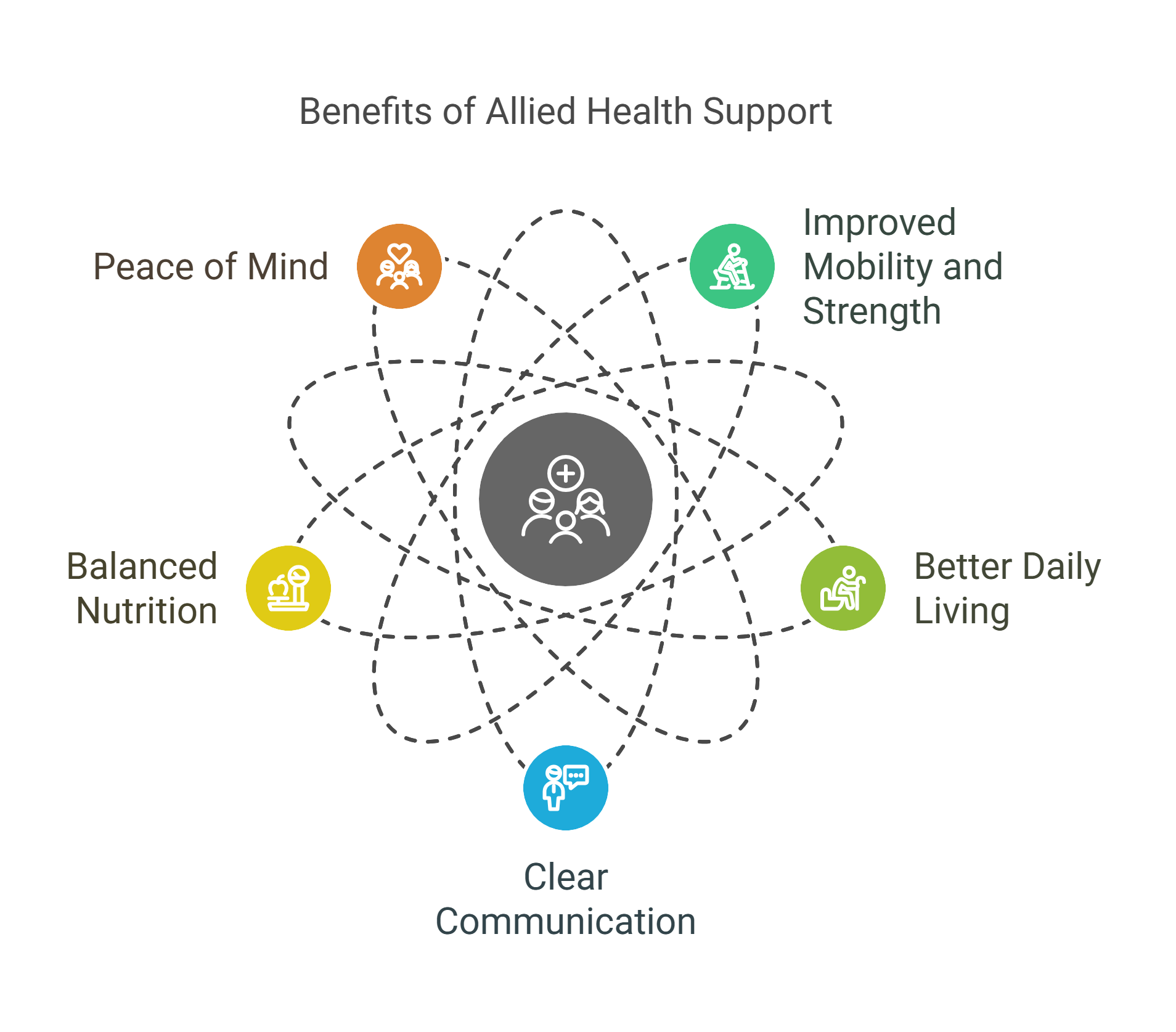What is Allied Health Support?
Allied health support is a service that brings in specialists to help older people maintain their independence and well-being. These professionals are not doctors or nurses, but they offer important support that focuses on different aspects of health. Allied health support covers services from occupational therapy, physical therapy, speech therapy, dietetics, and other special areas. Their role is to help residents in aged care live more comfortably and to manage changes in their health with clear and practical methods.
Key Services Provided by Allied Health Professionals

Allied health professionals work to improve the quality of life for residents in many ways. Some of the key services include:
- Physical Therapy: This service helps residents keep their strength and mobility. A physical therapist designs exercises that can be done at home or in a facility. The goal is to help residents move safely and with clear instructions.
- Occupational Therapy: An occupational therapist works with residents to develop techniques for everyday tasks. This support can include advice on using assistive devices and making small changes in the home to support safety.
- Speech Therapy: This service helps residents who have difficulties with speaking or swallowing. A speech therapist provides exercises and advice to improve communication and eating.
- Dietetics and Nutrition: Dietitians work with residents to plan meals that meet their health needs. They explain simple ways to have a balanced diet and help adjust eating habits as needed.
- Other Specialist Areas: Allied health support may also include services such as mental health counseling and social support programs. These areas help residents manage stress and keep a clear focus on their well-being.
How Allied Health Support Works in Aged Care
When a resident is assessed in an aged care setting, a team of health professionals reviews the needs of the person. Allied health specialists are then asked to visit the resident. During these visits, the specialist talks with the resident, listens to their concerns, and observes the environment. The specialist then writes a clear report that suggests activities and changes to improve the resident’s daily life. This report is added to the resident’s care plan and is shared with the care team and family members. The plan is reviewed regularly so that any changes in the resident’s condition are met with updated support.
The Role of Allied Health Support in Promoting Well-Being
Allied health support plays a key role in maintaining a high quality of life for residents in aged care. The support is given in a way that is clear and simple, making it easier for residents to understand and follow. Allied health professionals work side by side with the resident and the care team to manage changes in physical and mental health. Their advice and treatment help to prevent falls, improve strength, and maintain the ability to do everyday tasks. This support is not only about physical health but also covers aspects of mental and social well-being.
Benefits for Residents and Families

When residents receive allied health support, there are many clear benefits:
- Improved Mobility and Strength: With clear exercise plans and physical therapy, residents can keep their strength and move safely.
- Better Daily Living: Occupational therapy helps residents continue to perform everyday tasks independently.
- Clear Communication: Speech therapy assists in making sure that residents can express themselves and follow conversations.
- Balanced Nutrition: Advice from dietitians helps residents enjoy meals that are both healthy and enjoyable.
- Peace of Mind: Families feel relieved knowing that allied health specialists are working closely with the care team to support the health of their loved ones.
How to Access Allied Health Support
Accessing allied health support in aged care starts with a clear assessment of the resident. Once the needs are known, the care team arranges for the appropriate specialist to visit. Regular reviews of the care plan make sure that the support remains current and clear. Residents and their families are encouraged to ask questions and discuss the recommendations. Open and clear communication is a key part of making the system work for everyone.
Final Thoughts
Allied health support in aged care is a service that brings in trained specialists to help residents with physical, mental, and social challenges. Through services such as physical therapy, occupational therapy, speech therapy, and dietetics, older people receive support that is tailored to their needs. This clear and patient approach helps residents maintain independence and a good quality of life. With the right support, residents can continue to live safely and comfortably in their aged care environment.

.png)
.png)




